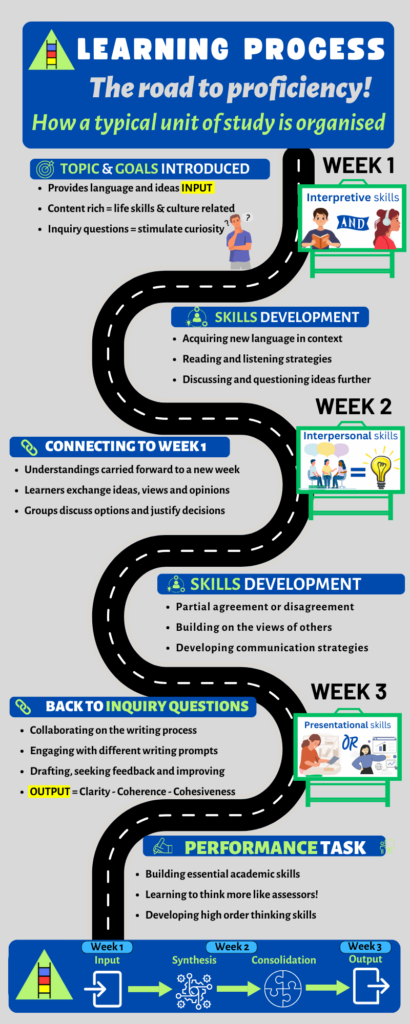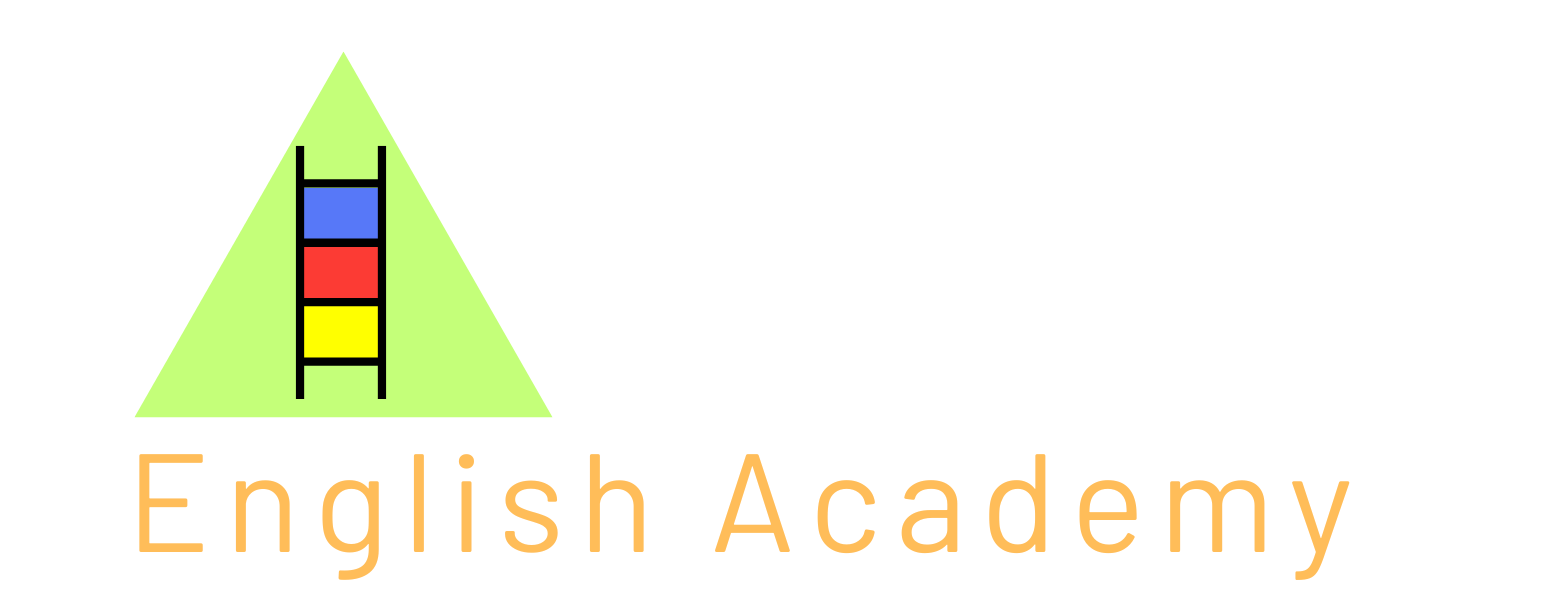
IPA English Learning System
What does IPA stand for?
Integrated Performance Assessment (IPA) is both a framework for designing effective and engaging units of language study AND a way of checking and developing language performance in communication in a low-anxiety way that supports learning goals. By working backwards from desired results, learner-centered task-based lessons can be designed to achieve these goals in a way that promote natural language acquisition and prioritize skills development.
How is a unit of study structured?
Each unit of study builds on the previous week and focuses on particular areas of skills development.
Week 1 – Input week –
Interpretive skills focus (listening and reading)
Inquiry questions are introduced connected to the main theme of the unit, so if the theme is ‘jobs’ then the questions could be ‘What kinds of careers are the most rewarding?’ Learners then explore authentic and academic reading and listening texts and are supported through various group work activities that develop skills and learning strategies aligned with Cambridge standards. From these ideas, thinking skills are developed to connect with the second week of study.
Week 2 – Synthesis and Personalization week
Interpersonal skills focus (two-way discussions)
This week involves discussion-based activities when learners have to find things out and make decisions while using strategies to develop communicative competence. Real situations are created for authentic communication and learners get lots of feedback while developing a toolkit to manage challenging situations this goes beyond just using language and being understood it also involves giving learners a toolkit to manage difficulties that arise in real communication. The understandings and ideas from this week will be a bridge to week 3.
Week 3 – Output week
Presentational skills (Academic writing or one-way speaking)
Moving learners towards a performance task that allows them to express their own understanding and develop their academic writing and presentation skills. The build up to this final task will involve lots of discussion work to support the writing process stages to ensure that the learners will be able to comfortably do their best work. The instructor will then have a feedback dialogue with the learner using a Cambridge rubric and then give them an opportunity to write an improved final draft.

How is learning assessed?
After every two units of study, students will complete a three-part assessment of what they can do with the language based entirely on what they have been repeatedly doing in the classroom.
Part 1 – Interpretive Assessment: (listening and reading)
Learners have to employ the learning strategies that they have been practicing making clear their understanding of the texts. These assessment tasks will be measured against clear performance standards which will be used to give learners feedback immediately after the assessment.
Part 2 – Interpersonal Assessment: (two-way discussions)
This assessment measures the learner’s ability to participate in conversations and interact with others in real-time. They are expected to ask and answer questions, exchange information, and negotiate meaning during the interaction. The assessment emphasizes spontaneous communication, where learners must respond appropriately to prompts or questions using well-practiced communication strategies.
Part 3 – Presentational Assessment
Learners are tasked with producing spoken or written content that is organized, clear, and appropriate for a specific audience. They are evaluated on their ability to present ideas, information, and arguments effectively, often through speeches, presentations, or academic writing. The focus is on the learner’s thought process and their ability to communicate their ideas in a coherent and structured manner.
